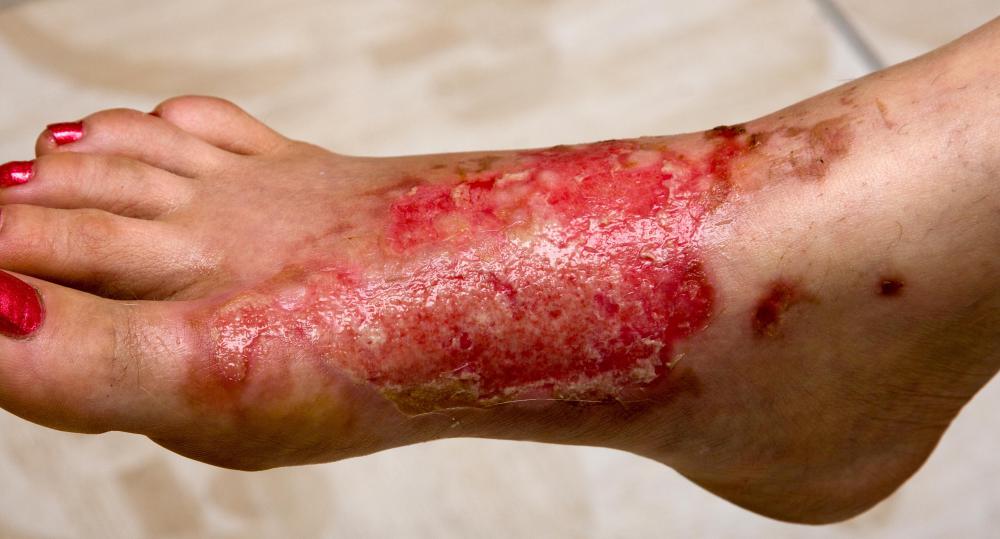At WiseGEEK, we're committed to delivering accurate, trustworthy information. Our expert-authored content is rigorously fact-checked and sourced from credible authorities. Discover how we uphold the highest standards in providing you with reliable knowledge.
What are the Pros and Cons of Therapeutic Cloning?
Therapeutic cloning involves the replication of cells and body tissues for medical use. The implications of cloning for conditions as diverse as failing organs and faulty tissue function are promising, as is the value for overall scientific research. Many prominent scientific and medical organizations thus endorse cell cloning, but a number of critics — scientific and otherwise — condemn the practice. They argue that the actualities of therapeutic cloning do not live up to the promises, and in some cases may prove dangerous. More importantly, opponents say, therapeutic cloning raises some serious ethical questions about life and death.
Embryos can produce unique stem cells that are capable of being nurtured into any type of organ cell or tissue. If a patient has a damaged heart, cloned cells could be used to create the healthy beating cells of heart tissue. A person suffering from severe burns could be treated with cloned skin cells rather than painful and unpredictable skin graft procedures. If an individual is afflicted with a spinal cord injury, cloned nerve cells may one day allow that person to walk again. The aforementioned are just a few of the possible benefits cloning could provide.

More hopeful still, the potential of rejection in organ transplants is greatly reduced because the newly cloned organs would come from the afflicted individual's own cells. Human cloning advances multiply every year, but scientists have already achieved some success in cloning pig or other animal tissues for medical purposes. Since pigs possess a similar organ system to humans, the mammals make ideal candidates for basic research and even organ transplants.

Proponents tout the use of cloning in hospital settings, but the potential for overall medical research is even more tantalizing. Cell development is a crucial link in understanding complex conditions such as birth defects and cancer. If cloned cells afford scientists a better understanding of normal cell development, then by extension they will also gain insight into the causes of abnormal cell development behind many defects and cancers. Further, cloned cells could allow the manipulation — and possible elimination — of genetic diseases.
Evidence from some of the field’s leading scientists, however, suggests some serious drawbacks to therapeutic cloning. In fact, many medical cloning exercises are not successful. A large number of cloned cells contain defects, which ultimately defeats their very purpose as agents of healing. Even many fully cloned organisms experience significant defects and die prematurely. Using cells from cloned organisms can create false hope and, possibly, faulty treatments.
While medical concerns are valid, arguably the most prominent voice of dissent for cloning of any type arises from individuals concerned cloning embryos. Just as abortion supporters and opponents are divided about the issue of when life begins, the same question fuels passionate debate around cloning. Critics argue that cloned embryos should not be used for medical experiments because they are viable living things with their own rights. The embryo has DNA and a complete genome; it has all of the capabilities of growing into a mature human fetus.
The potential problems that therapeutic cloning and cloning as a whole create can be taken further. Religious individuals may feel cloning interferes with matters of creation best left to spiritual beings or nature. If full human cloning comes to fruition, the resulting organisms may be stripped of individuality and utilized as mere organ harvesting systems for their donors. Such concerns have led many regions to ban cloning practices.
AS FEATURED ON:
AS FEATURED ON:












Discussion Comments
@Terrificli -- I don't know that I completely agree with that. The major fights over this issue have been over who is to pay for the research. Should the government do it or should that be left to private researchers?
Some people have called attempts to ban government funding of cloning or stem cell research as outright censorship while others claim the feds have no business using taxpayers' money for research on such a controversial subject.
Either way, cloning and stem cell research hasn't been banned in the United States. Where the money is to come fun has given rise to some major fighting among elected officials and the voters.
A big problem with this whole issue is that the United States government has, at time, taken steps to ban such research. That is a complicated issue because of the religious beliefs a lot of people have. Some of the more religious types have moral qualms about harvesting aborted fetuses for stem cells, playing around with cloning, etc. Other groups do not share those concerns and area all for advancing medicine in hopes of saving more lives.
Trying to keep both groups happy is a big problem for the government meaning it will get criticized by someone regardless of what decisions our elected officials make on these issues.
Post your comments